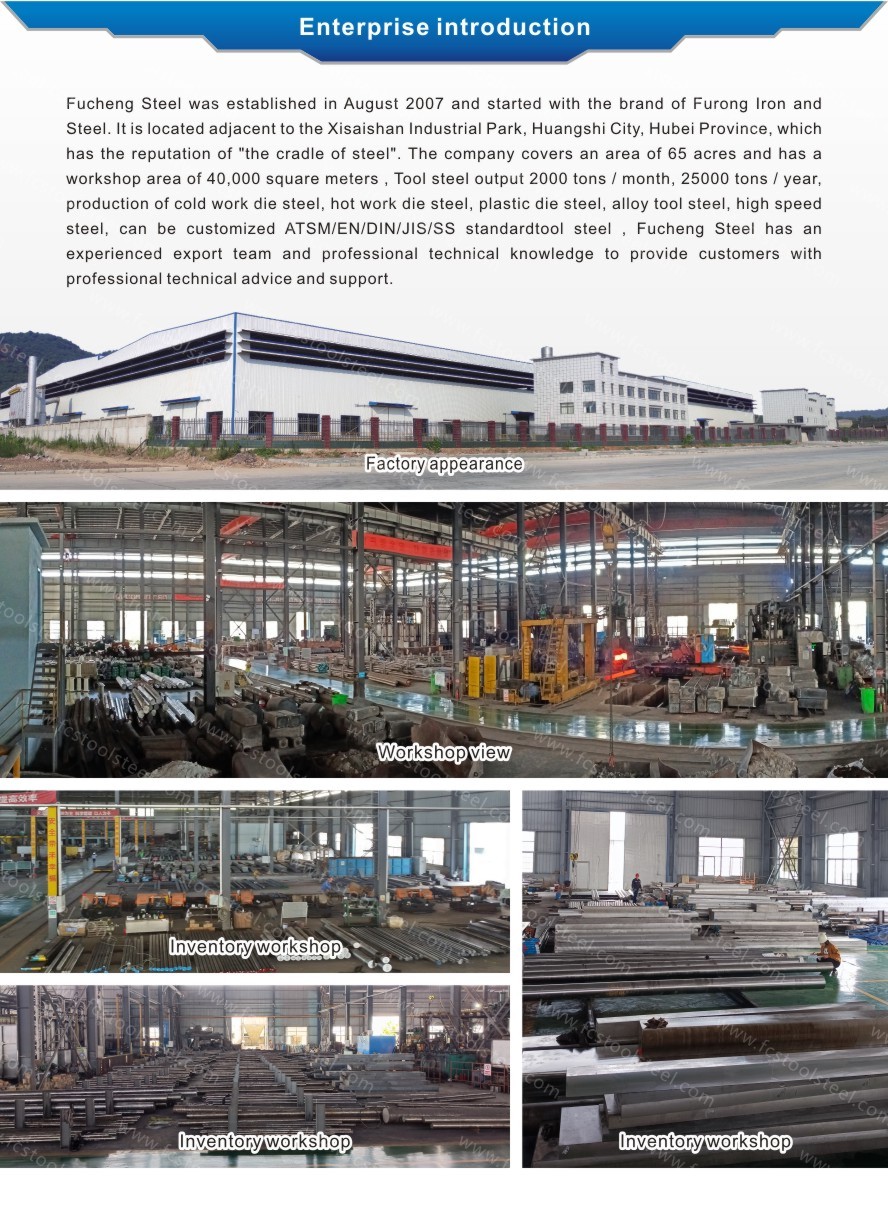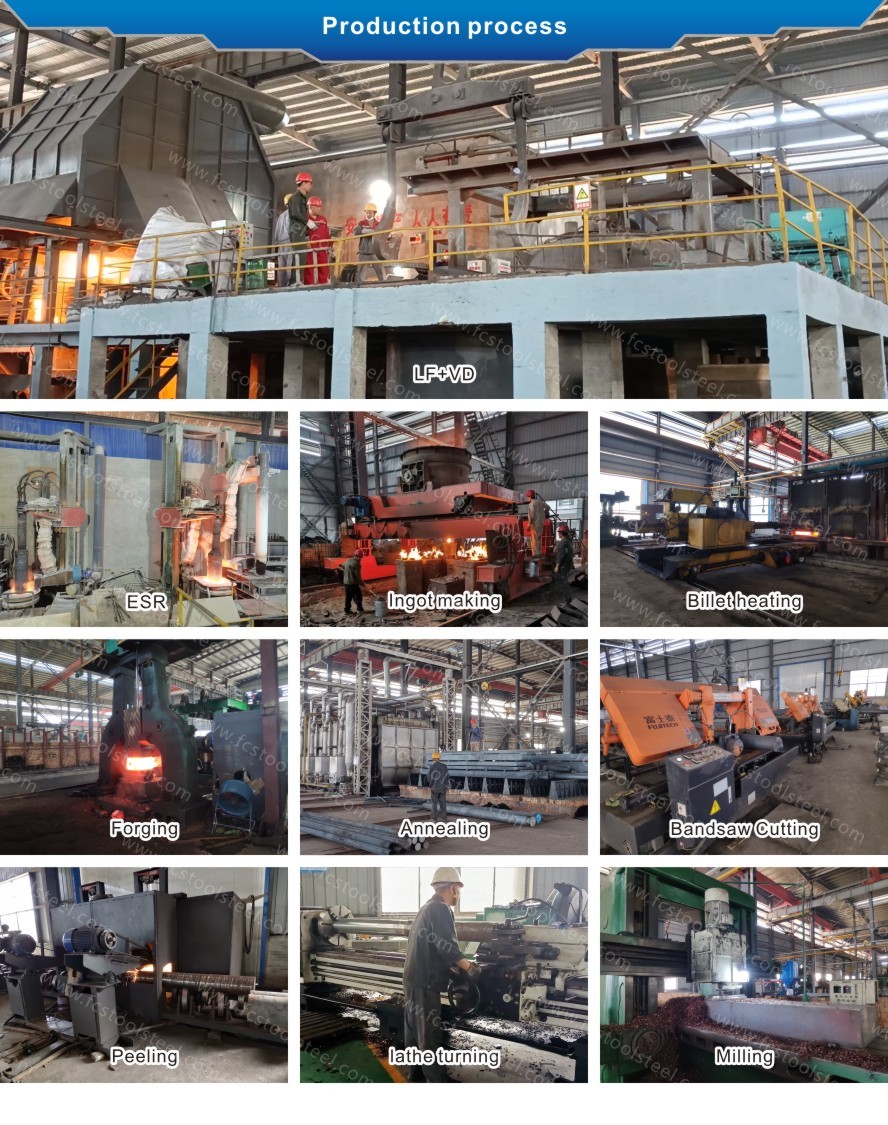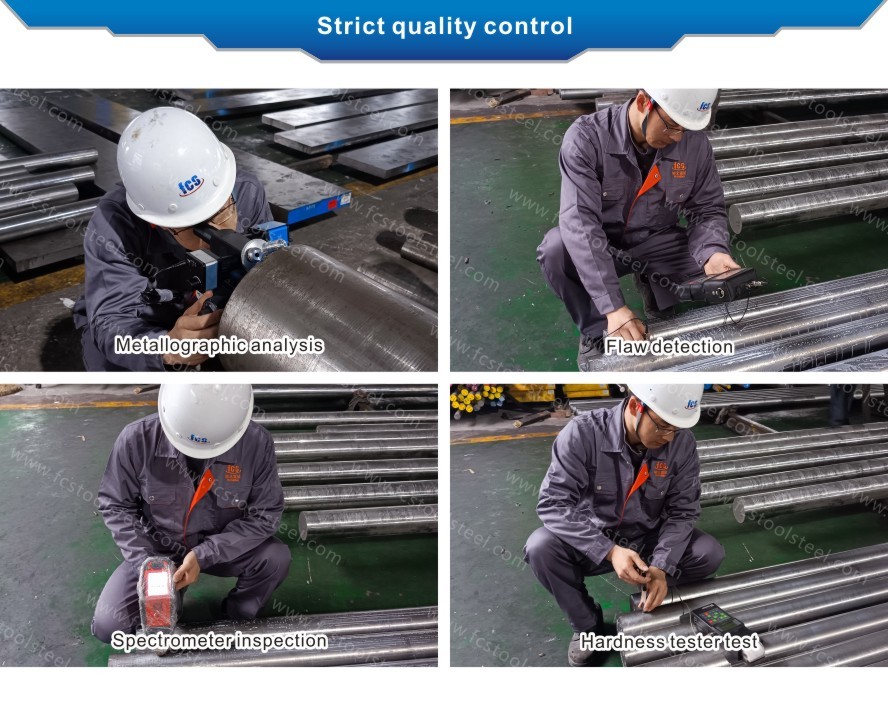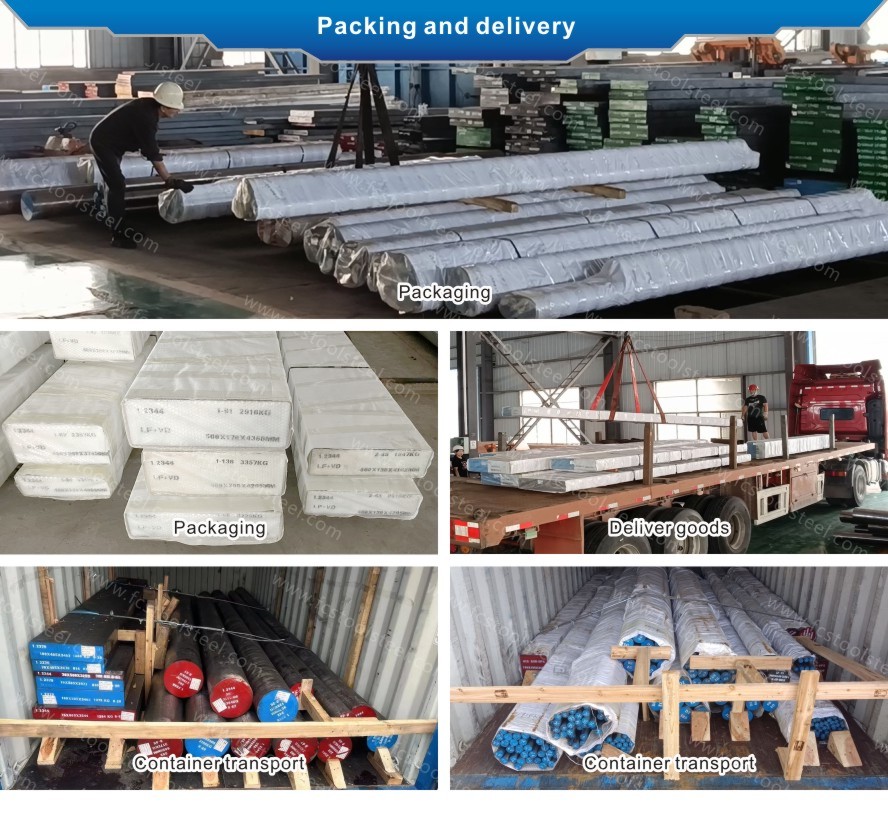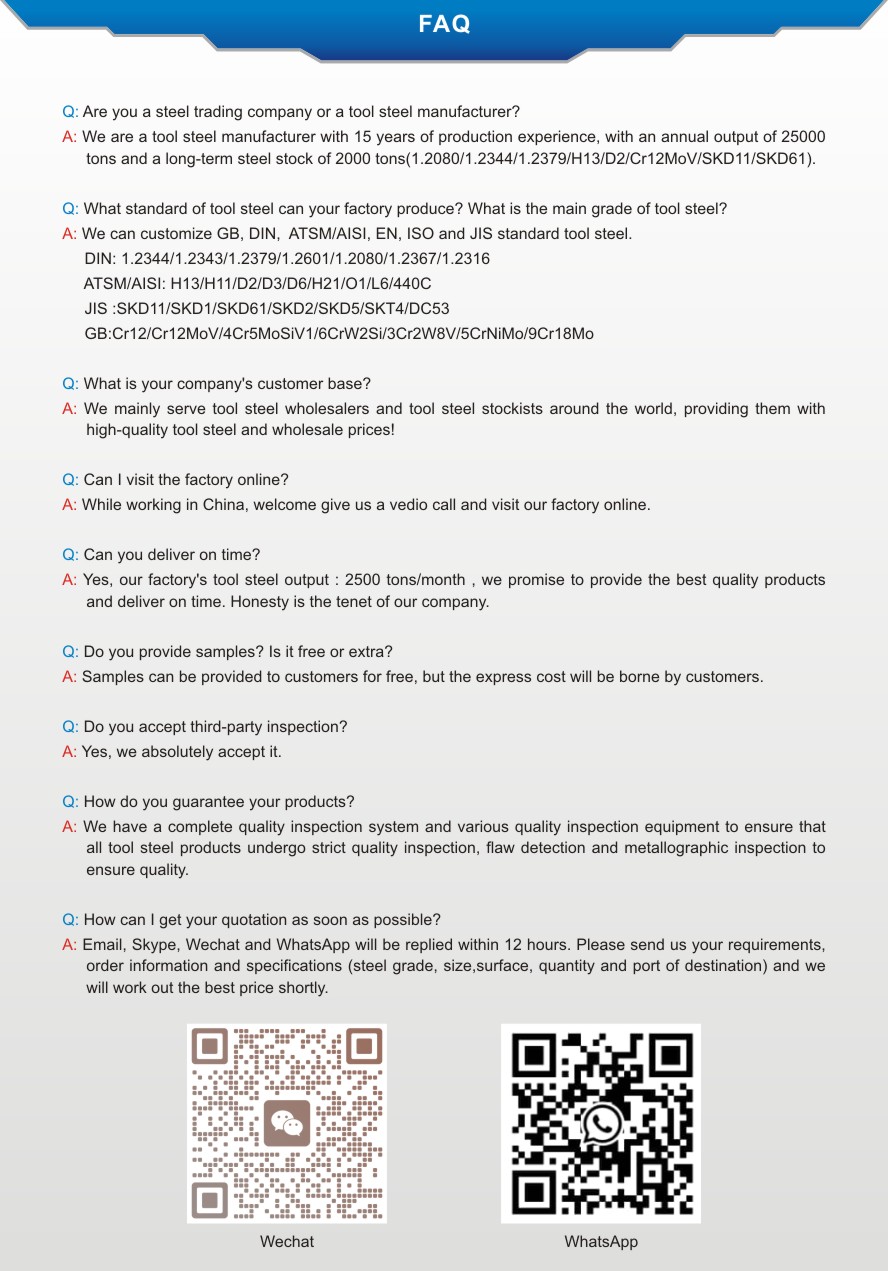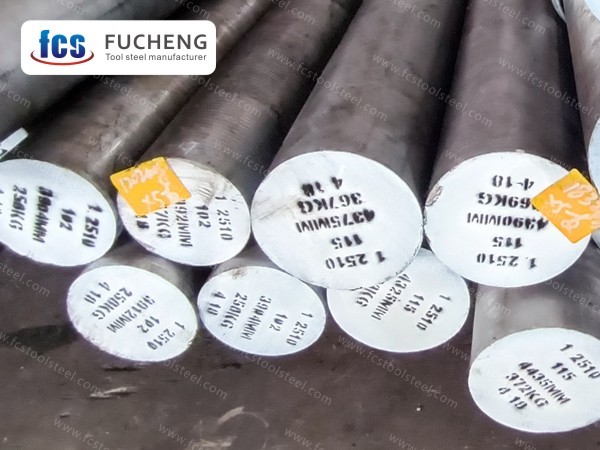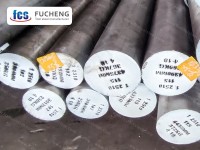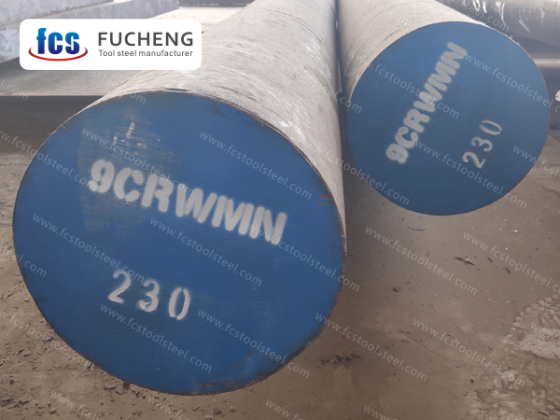
- Home
- >
- Products
- >
- 1.2510 Tool Steel
- >
1.2510 Tool Steel
1.2510 steel is suitable for making wear-resistant and non deformed cold working dies, jewelry embossing dies, various metal stamping dies and forming tools, mold bushings and cutting tools.
- fucheng steel
- China
- 1 Month
- 2000 Tons/Month
- Information
- Video
1.2510 TOOL STEEL
| Smelting and Manufacture Method: | LF+VD+Forged |
| Delivery Condition: | Annealed |
| Delivery hardness: | ≤230 HBS |
| UT Test Standard: | Sep 1921-84 Class3 D/d,E/e |
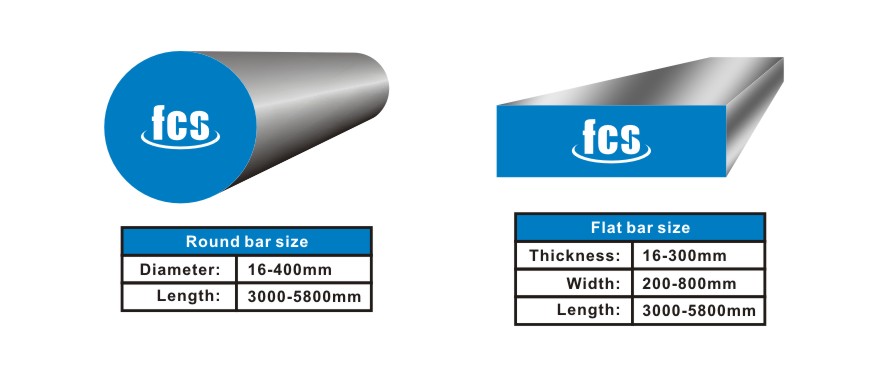
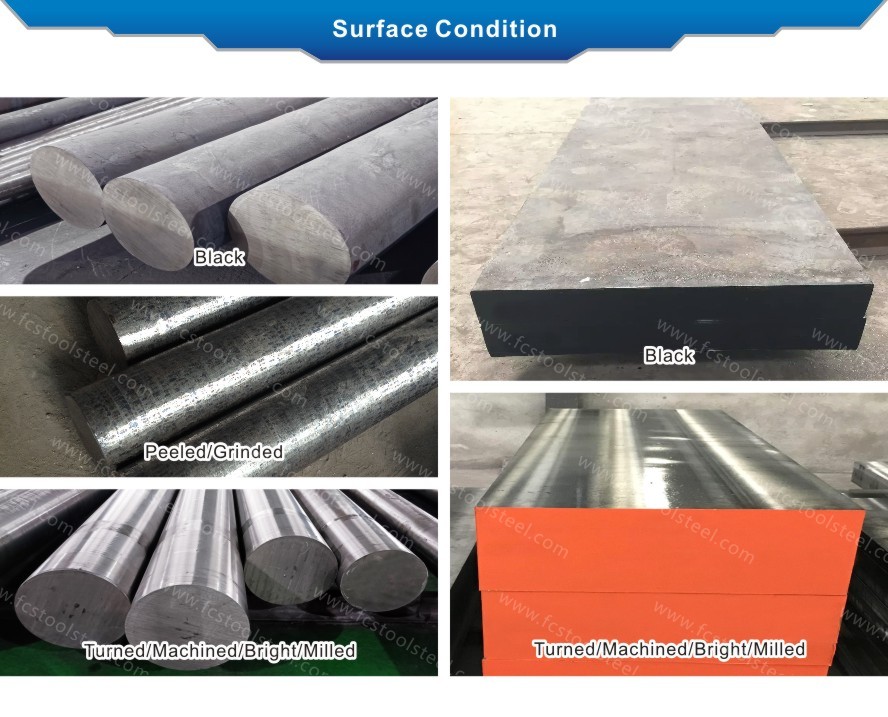
1.2510 STEEL GRADE COMPARISON AND CHEMICAL COMPOSITION COMPARISON
| Standard/Steel Grade | Chemical Composition(%) | ||||||
| C | Si | Mn | Cr | V | W | ||
| DIN/W-Nr. | 100MnCrW4/1.2510 | 0.90~1.05 | 0.15~0.35 | 1.00~1.20 | 0.50~0.70 | 0.05~0.15 | 0.50~0.70 |
| ASTM | O1 | 0.85~1.00 | 0.10~0.50 | 1.00~1.40 | 0.40~0.60 | ≤0.30 | 0.40~0.60 |
| JIS | SKS3 | 0.90~1.00 | ≤0.35 | 0.90~1.20 | 0.50~1.00 | - | 0.50~1.00 |
APPLICATION
1.2510 steel is suitable for making wear-resistant and non deformed cold working dies, jewelry embossing dies, various metal stamping dies and forming tools, mold bushings and cutting tools.
1.2510 Steel Characteristics
1.2510 steel is a high-quality non deformable cold work tool steel, classified as manganese chromium tungsten alloy oil quenched steel. With its excellent dimensional stability, high wear resistance, and excellent impact toughness, it has become the core material of precision cold work molds, especially suitable for industrial production scenarios that require high precision and long life.
1.2510 steel exhibits excellent comprehensive performance after heat treatment, with minimal deformation during quenching and hardening. Its surface hardness can reach HRC 62 or above, while maintaining high toughness, ensuring that the mold resists angular collapse or fracture under repeated impact loads, greatly improving the machining consistency of the workpiece.
The heat treatment process of 1.2510 steel requires precise control: quenching preheating temperature of 600-650 ℃, austenitizing temperature of 800-850 ℃, oil cooling, combined with low-temperature tempering at 150-250 ℃ to optimize the balance of hardness and toughness. When tempered at 250 ℃, the hardness is about HRC 58-59, balancing wear resistance and impact resistance.
1.2510 steel has superior processing performance, with a soft annealed hardness of ≤ 230 HB, making it easy to cut and form. The use of hard alloy cutting tools can achieve efficient machining, but sufficient cooling and pressure control are required during grinding to avoid surface softening or grinding cracks caused by overheating.
1.2510 steel application covers high load cold work fields, including precision punching dies (such as automotive hinge punches), wear-resistant plastic molding cavities, plastic small mold injection cores, as well as cutting tools and bearing rolling forming tools, especially suitable for precision parts with strict surface quality requirements for mass production.
Compared to ordinary tool steel, 1.2510 steel has significantly improved resistance to tempering softening, maintaining high hardness even after high-temperature tempering. At the same time, the uniformity of carbide distribution is better than similar materials (such as 1.2379), effectively reducing the risk of processing cracking and extending the service life of molds.
Special treatment is required after electric discharge machining of 1.2510 steel: fine discharge should be carried out in a low current high-frequency mode. After machining, the surface "electric discharge white layer" must be ground and removed, and an additional low-temperature tempering (temperature about 25 ℃ lower than the previous one) must be added to eliminate residual stress and restore material performance stability.
